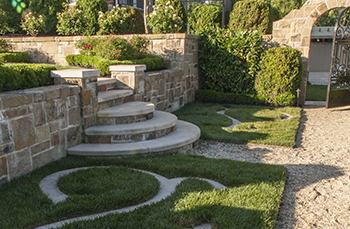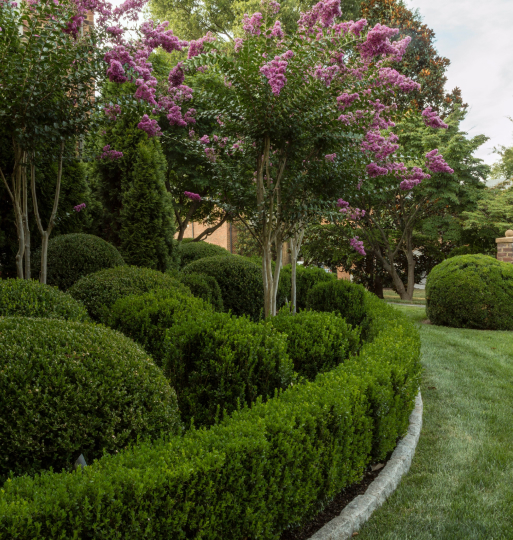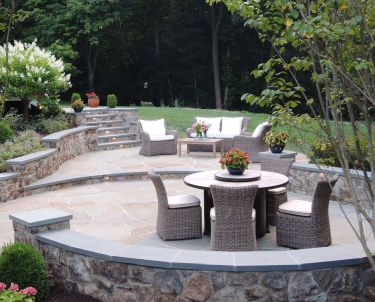
Should You Use Rock or Mulch in Planting Beds?
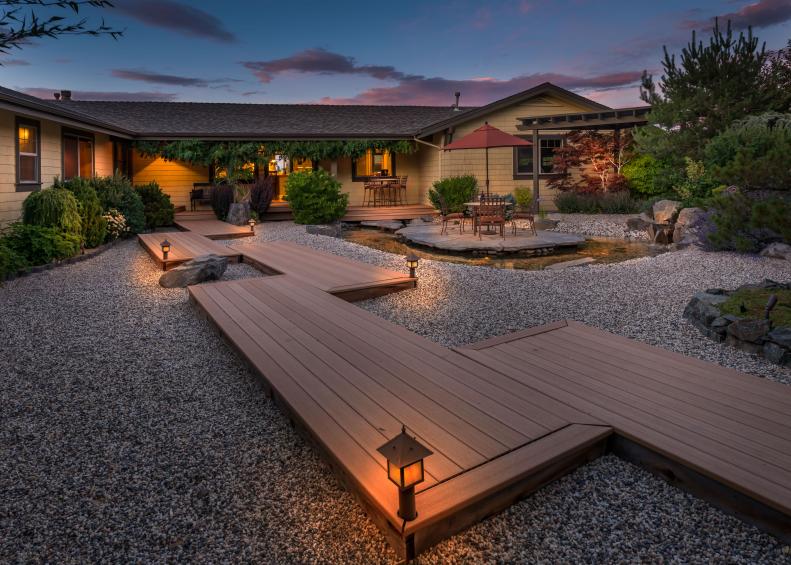
If you think the perfect landscape is just about what plants you choose, think again! As important as the flowers and foliage is the planting bed you select. While mulch is one of the most popular landscaping materials, rocks in a garden bed can be stunning, too.
At Wheat’s Landscape, our expert landscaping team can assist with your planting bed selection to ensure your plants stay well-nourished and healthy. No matter what planting bed material you choose, our team will help create the outdoor oasis you always imagined. Contact us today to schedule landscaping services in Maryland.
Main Differences Between Rock & Mulch Planting Beds
Both rock and mulch come in a variety of colors, textures, and shapes, offering homeowners a completely personalized landscape that suits their design preferences. While you can’t go wrong in either category for aesthetic variety, there are some main differences between the two planting bed options that can help inform your selection process:
- Bark mulch: This mulch type is sourced from various trees, such as cypress, cedar, pine, hemlock, and oak. While bark mulch adds a rich appearance upon initial application, the color fades over time in the sun and will need annual replacement. Sourced from organic materials, bark mulch decays over time to provide additional nutrition to your soil.
- Rock mulch: Created from river bed rocks, rock mulch is a largely decorative planting bed option. Resistant to fading in the sun, rocks will not need annual replacement or maintenance other than the occasional hosing down. Because rocks do not add nutritional value to soil, you may need extra fertilizer to keep plants well-nourished.
Understanding the differences between these two planting bed options can help you make a more informed decision for your landscaping needs. However, these differences alone aren’t all that needs to be considered when planning out your landscape design. Find out more about which option is best for your home garden in the section below.
Which is Best for Your Landscaping Needs?
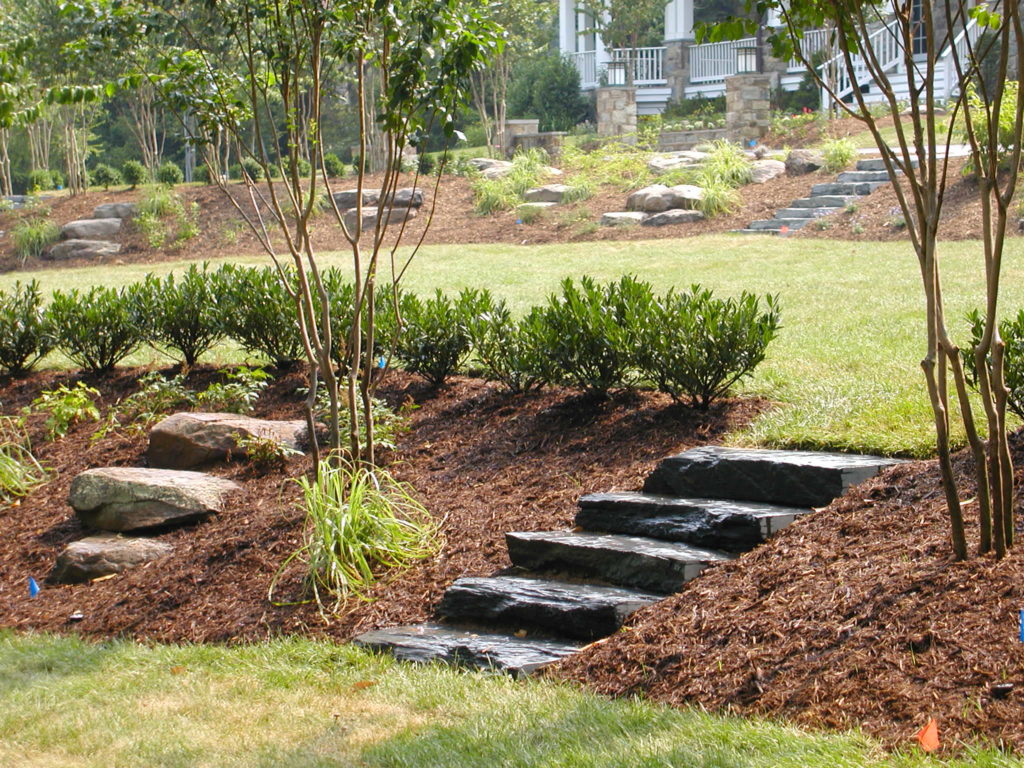
There are a few main factors to consider when selecting the best planting bed option for your landscape design, including:
- Installation: Rock mulch requires a fabric weed barrier and steel edging to successfully install, while bark mulch does not.
- Maintenance: Bark mulch will need annual replacement, while rock mulch will only need occasional washing to maintain appearance.
- Cost: Rock mulch costs much more than bark mulch application; however, rock mulch only needs to be purchased once, while bark mulch will need annual replacement.
- Plants: Flowers and other delicate plants won’t survive as well in a rock mulched bed compared to a bark mulched bed; however, drought-tolerant plants like cacti and succulents will thrive in a rock bed.
In addition to these factors, be sure to consider other things that may impact your landscaping design goals. For example, high-traffic areas where pedestrians take shortcuts can make rock mulch a better option. On the other hand, if you have a lot of trees that shed leaves and debris, bark mulch may be a better choice to avoid accumulating unwanted sticks, leaves, and other debris in your rock bed.
Wheat’s for Virginia’s Landscaping Services
Whether you need rock or bark mulch for your landscape design, the team at Wheat’s has the products and services you need to keep your plant life looking and feeling its best. Our team will assess your needs, guiding you to the best choice for your planting bed. Contact us to get the expert assistance you need to select the best mulching solution for your landscape design today!




